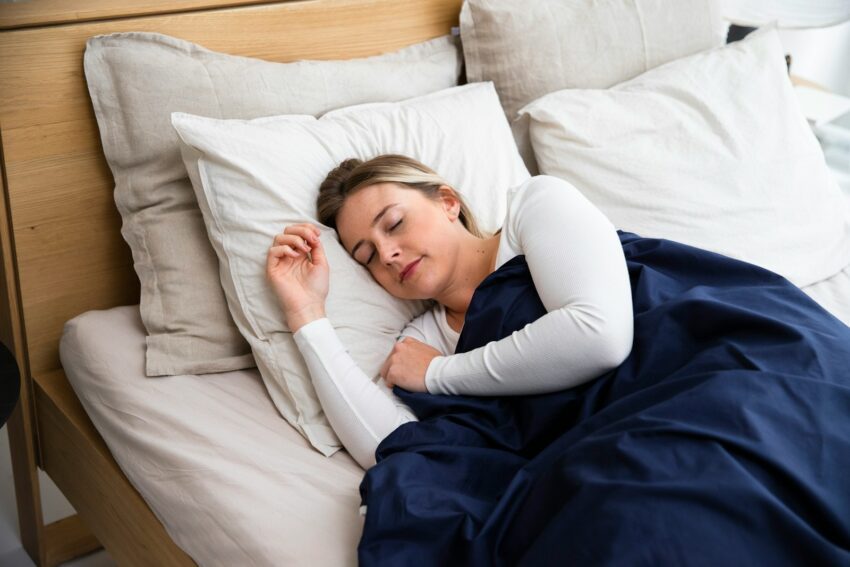There’s much to love about getting a good night’s sleep, and in fact, it might just be the most influential factor when it comes to your overall well-being. Being well-rested gives you the energy to exercise, prepare meals, and do those other good-for-you tasks that help you to be at your physical and mental best.

Plus, it’ll just put you in a good mood. Even the happiest of souls can become a little grouchy when they haven’t slept for as long as they’d have liked!
The frustrating thing about sleep is that sometimes, the more you want it, the more difficult it becomes. If you’re thirsty, you can drink water. If you’re hungry, you can eat. But if you’re tired? It’s not always as simple as closing your eyes and drifting away.
Happily, researchers have developed a pretty understanding of what’s required for a good night’s sleep. If you find it difficult to reach the land of Nod, then the following tips should help.
Treat It Seriously — Create a Routine
Some people are blessed by the ability to fall asleep as soon as they get into bed. For others, it requires a little bit more effort. One often overlooked habit that can seriously enhance sleep quality is to establish and stick to a routine. That means going to sleep and waking up at the same time each day. Over time, you’ll find that your internal clock naturally knows when it’s time to sleep and when to rise.
Put Together a Hotel-Worthy Bedroom
Again, there are some people who can sleep wherever they are — planes, trains, and noisy bedrooms, it just doesn’t matter. If you’re struggling to get a consistent night’s sleep, then take another look at your sleeping environment. Is it as sleep-friendly as it could be? When in doubt, take the hotel approach. That means blackout curtains, a comfortable bed, an agreeable temperature, and minimal noise. Those four things alone can make it much easier to fall and stay asleep.

Pro-Sleep Diet and Exercise
What you consume and how much you move can have a big impact on your ability to fall asleep. You can’t expect to instantly fall asleep if you consume alcohol, caffeine, and tobacco late in the day, or if you never move your body. Exercising (or at least movement) can seriously boost your sleep, as can consuming relaxing tea, sleep gummies, and a light snack before getting into bed. Just be sure not to exercise in the few hours before going to sleep; exercise gives you a jolt of energy, which might make it difficult to wind down before sleeping.
Pre-Sleep Routines
Finally, you can support your sleep quality by adjusting what you do before you fall asleep. If in doubt, focus on meditating, reading, and listening to calming music. It’s tempting to spend time looking at your smartphone, but remember that sleep experts recommend avoiding looking at screens in the hour before sleep, since blue light can keep your mind in a state of alertness.
